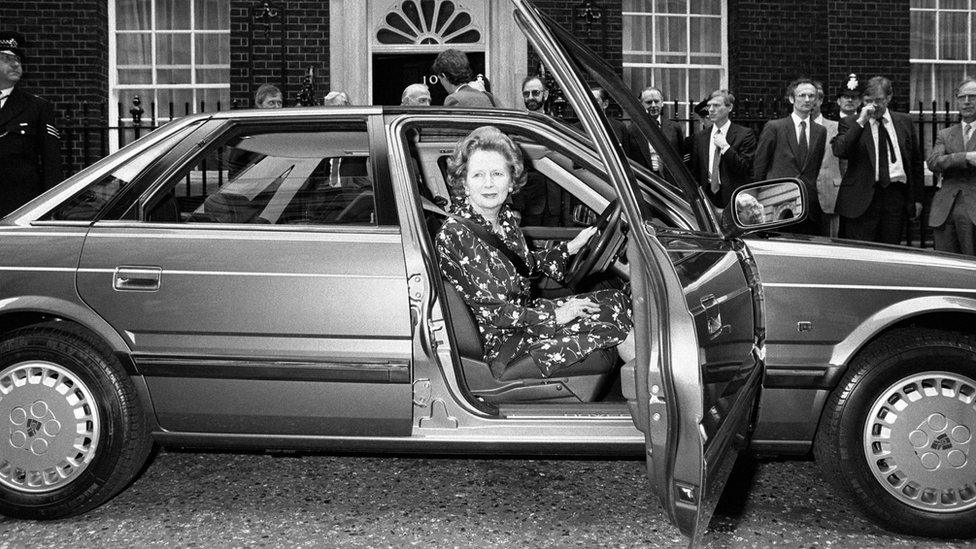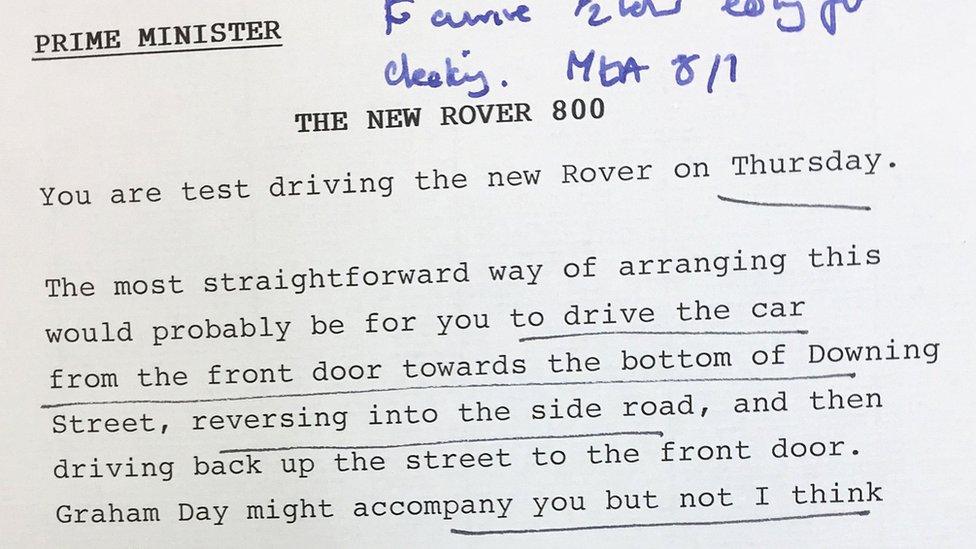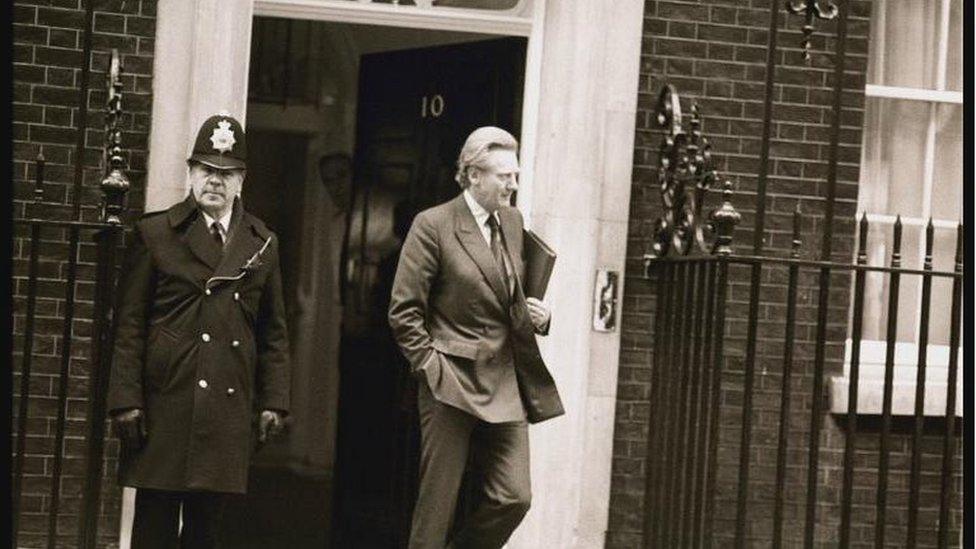Thatcher secret test drive revealed in newly released files
- Published

Margaret Thatcher test-drove the new Rover outside 10 Downing Street - but not before a practice session
Officials feared Margaret Thatcher could crash Rover's new car when she test-drove it for a photocall, newly released papers suggest.
A secret rehearsal was arranged at Chequers for the then PM to "familiarise" herself with the vehicle.
Her newly released personal files, external cover 1986, when Michael Heseltine quit over the so-called Westland affair and the US launched bombing raids in Libya.
They have been published by the Thatcher Foundation.
'Fully confident'
The documents reveal careful planning behind the scenes to avoid anything going wrong with the Rover 800 photoshoot at Downing Street.
The PM's private secretary Mark Addison wrote to her, external: "You are test driving the new Rover on Thursday.
"The most straightforward way of arranging this would probably be for you to drive the car from the front door towards the bottom of Downing Street, reversing into the side road, and then driving back up the street to the front door.
"If you would like to handle the test drive in this way, you would need to feel fully confident about manoeuvring the car into the side road and back out again.
"The alternative would be to walk down to the car at the bottom of Downing Street and drive it back to the front door.
"Agree to the first option? Or prefer to keep it simple."

In another memo, Mr Addison told her the car was being towed, under cover, to Chequers for her to rehearse beforehand.
Chris Collins, from the Margaret Thatcher Archive Trust, said he believed Mrs Thatcher had seldom driven since 1975, leading to concern from officials.
"I think I'm reading between the lines but I'm reasonably confident that there was that worry, that there was this dark fear that she would crash into something, that it would all go horribly wrong, and after all she hadn't driven for many many years," he said.
The trust is overseeing the release of Mrs Thatcher's private files through the Churchill Archive Centre in Cambridge.
Heseltine warning
The files also reveal concerns that a blue, not a red, car should be supplied, but in the end the stunt passed without a hitch.
Things went less smoothly for the prime minister when she tripped over a manhole at the Conservative Party conference in Bournemouth.
In a letter to the mayor apologising for pulling out of a civic ball that evening, she said: "As you may have heard I tripped over one of Bournemouth's manholes this afternoon and my ankle didn't like it very much. Neither did the manhole!"
Other papers in the newly released batch include a letter - written but never sent - from Mrs Thatcher to the then defence secretary Michael Heseltine, external warning him to toe the line or give up office over the Westland affair.
The battle for control of British helicopter manufacturer Westland was one of the most divisive political rows of Mrs Thatcher's second term in office.

Former Defence Secretary Lord Heseltine stormed out of cabinet over the Westland affair
The letter, drafted three weeks before Mr Heseltine resigned over the row, tells him the government's view of the future of British helicopter manufacturer Westland is that it is "a matter for the company to decide", adding: "In this situation no minister should use his position to promote one commercial option in preference to another - so long as he remains in government."
A more minor helicopter-related exchange, external involved a request for Mrs Thatcher to use one to travel the short distance from Downing Street to the opening of the Broadgate development in the City of London.
In a hand-written note, the PM dismissed the "ridiculous" suggestion, saying it would be an "unwarrantable extravagance and I should be criticised severely".
The documents also cover the fallout from the US air strikes in the Libyan capital, Tripoli, for which Mrs Thatcher allowed the use of British airbases.
One note, external, before the PM was due to speak on the subject, said an "unusually large number of calls" had been received by Conservative Central Office expressing concern about the raids.
Another revealed a warning from a senior civil servant that Conservative Party chairman Norman Tebbit's "obsession" with attacking the BBC's coverage of the military strikes risked a repeat of the "Westland troubles".